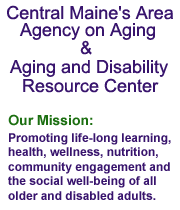 Winter Safety Tips for Seniors
Winter Safety Tips for SeniorsCold days, snow and ice are common occurrences in Maine. Although we may joke about the weather, surviving the winter months does take some extra care.
At Bridges Home Care, community and aging in place are truly the heart of what we do. As part of Spectrum Generations, not only do we provide a quality service, but 100% of profits by Bridges Home Care go back into the community via Spectrum Generations Community Service programs such as Meals on Wheels.
Here are some helpful tips from Bridges Home Care that can help you make the winter months safe for you and your family.
- Be sure to wear shoes with good traction and non-skid soles. Consider wearing ice grips
- Stay only on sidewalks or areas that have been cleared of snow and ice
- Avoid going out during hazardous weather conditions.
- If you have an assistive device such as a walker or cane, be sure to bring it with you
- When you have to be outside, dress in layered and loose fitting clothing
- Limit time outdoors
- Be sure to cover all exposed areas of your body when outside.
- To keep your body temperature up, eat hot, nourishing meals and drink warm beverages
- Have your furnace inspected to be sure it is good, safe operating condition yearly.
- Place space heaters at least three feet from curtains, bedding, furniture and anything else that could burn.
- Keep a fire extinguisher handy, replace as needed and know how to use it.
- Check your smoke & carbon monoxide alarms: A good rule of thumb is to check the batteries when you turn your clocks. If you don’t have smoke & carbon monoxide alarms, install them now.
- Get your chimney inspected and cleaned yearly by a professional
- If you have a generator, check fuel, oil levels and test it. Remember, NEVER operate a generator in a basement or attached garage.
- Review the generators manual and all safety precautions
- Make sure your car is prepared for winter with snow tires, winter wipers wiper fluid, and ice scraper.
- Keep your gas tank full
- Let someone know your destination, route and expected time of arrival. Bring your cell phone
- Keep an emergency kit in your vehicle. (Visit www.AAA.com for more information)
- Create a list of the emergency numbers for your power utility, oil or gas company, Telephone Company, snow Removal Company and any other contacts.
- Have a 3-day supply of non-perishable food and water (one gallon per person per day). Don’t forget supplies for your pet and any medications you might be taking.
- Know where to go for information about local weather emergencies, road or business closings (TV, radio).
- Know the difference between winter storm watches and warnings.
- Stay in contact with family and friends during severe winter weather
- If you have home health care services, plan ahead with your agency for emergency procedures
For more information about winter weather safety for all ages, visit the Centers for Disease Control and Prevention's Winter Weather website.

Take heart – winter won’t last forever!


